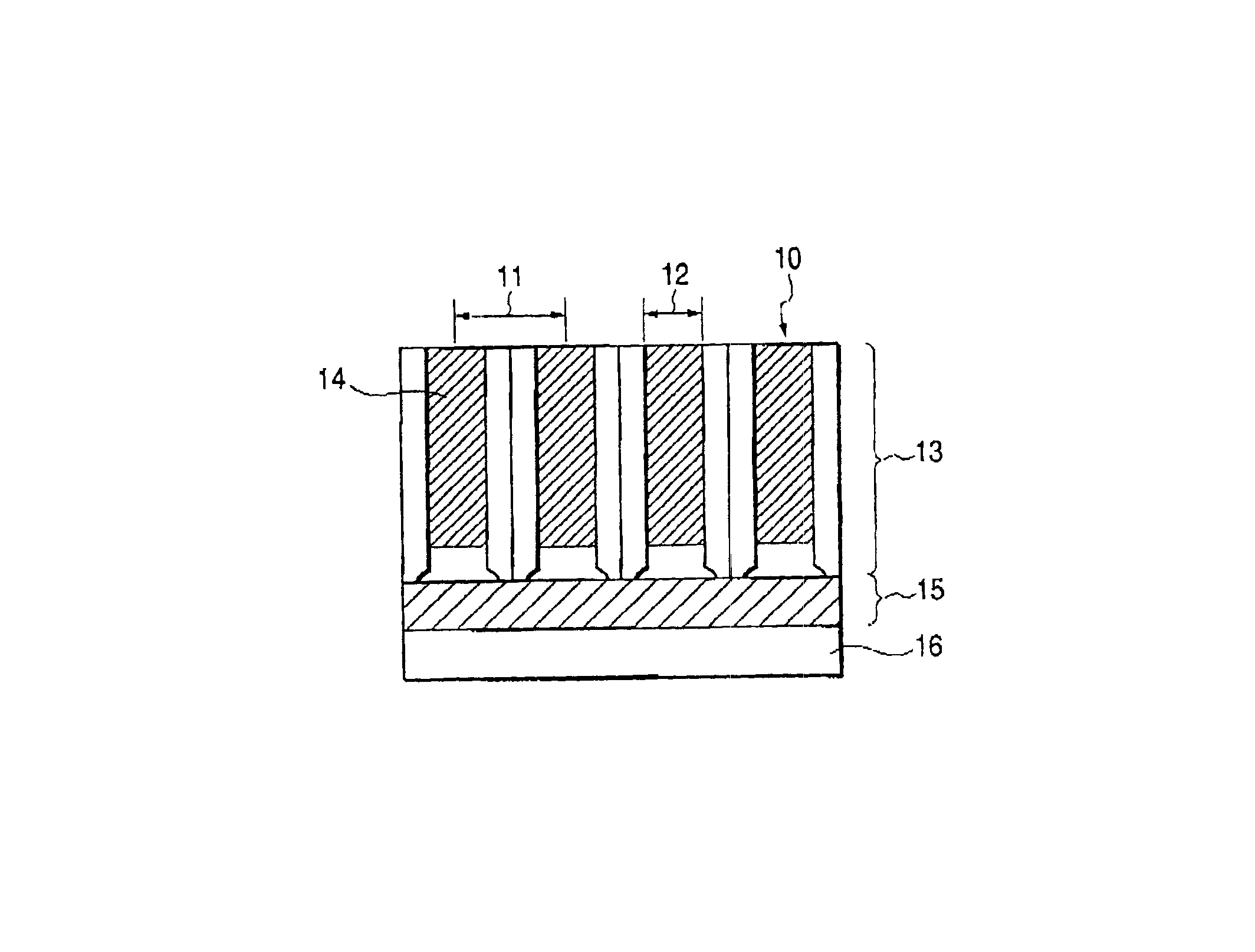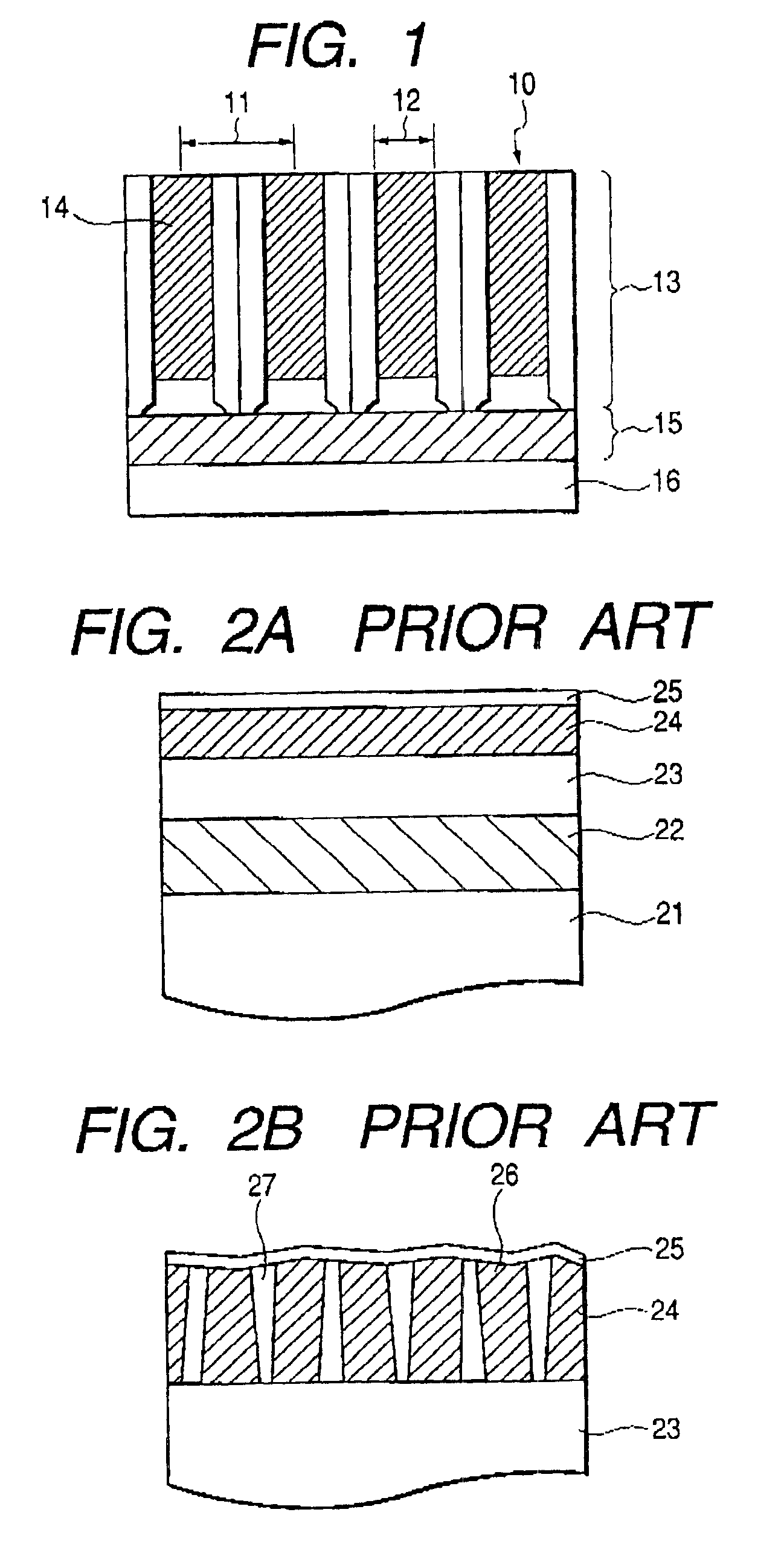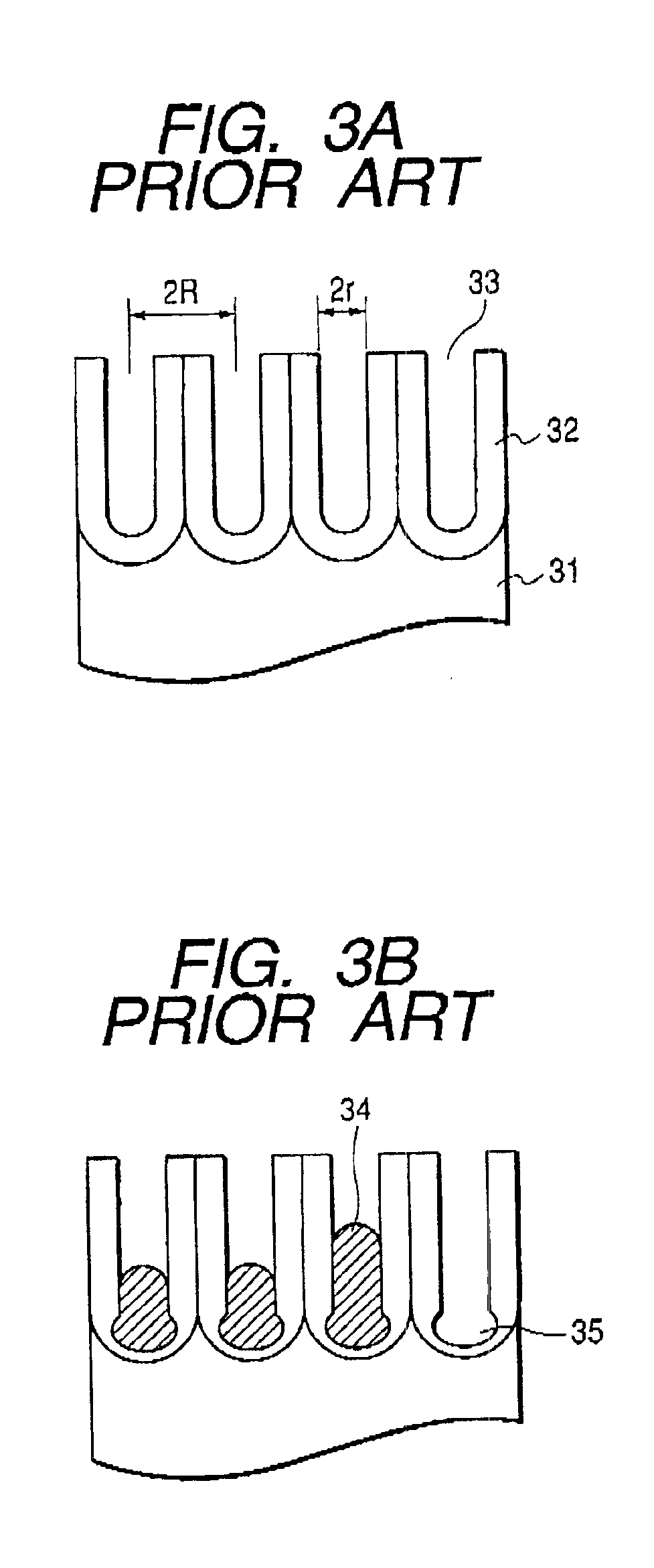Magnetic recording medium including aluminum layer having holes and production method thereof
a technology of aluminum layer and recording medium, which is applied in the direction of magnetic bodies, soldering apparatuses, instruments, etc., can solve the problems of limited structure control, easy bringing a superparamagnetic effect, and noise accompanying the domain wall
- Summary
- Abstract
- Description
- Claims
- Application Information
AI Technical Summary
Benefits of technology
Problems solved by technology
Method used
Image
Examples
example 1
[0058]This example relates to a manufacturing method and respective shapes and orientation of a hard magnetic substance filling anodic oxidized alumina nanoholes.
[0059]A substrate on which a Ti film of 10 nm thick and a Cu film of 20 nm thick, and an aluminum film of 500 nm thick had been formed on Si substrate by sputtering was anodized by applying 40 V in 0.3 M of oxalic acid aqueous solution at 16° C. Next, the substrate was immersed for 25 minutes in 0.5 wt % of phosphoric acid aqueous solution for expanding hole diameters. At this time, the (111) face of the Cu film was oriented in the direction perpendicular to the substrate, and since a Cu face was exposed in each nanohole bottom, the Cu film had good conductivity.
[0060]The anodic oxidized alumina nanoholes thus produced was filled with Co, which is a hard magnetic substance. Here, an aqueous solution that consists of cobalt sulfate (II) heptahydrate of 0.2 M and boric acid of 0.3 M was used at 24° C. for the electrodepositio...
example 2
[0066]This example relates to the formation of an alloy of Co and Cu by mixing the electrodeposition liquid in Example 1 and a copper sulfate (II) aqueous solution.
[0067]First, similarly to Example 1, the alumina nanoholes were prepared.
[0068]An aqueous solution that a copper sulfate (II) pentahydrate of 0.01 M was mixed with an aqueous solution, which consists of cobalt sulfate (II) heptahydrate of 0.2 M and boric acid of 0.3 M, in a 1:1 ratio was used at 24° C. for the electrodeposition.
[0069]The electrodeposition was performed with applying −1.0 V to the Ag / AgCl reference electrode.
[0070]Then, electrodepositions overflowed on the surface were removed by polishing, and X-ray diffractometry and magnetization measurement were performed.
[0071]As the result of X-ray diffraction, it was verified that the c-axes of electrodepositions are oriented dominantly.
[0072]Furthermore, although the saturation magnetization of this ample decreased to 680 (emu / cc) than the case of only Co according...
example 3
[0074]This example relates to a manufacturing method and orientation of a nonmagnetic substance and soft magnetic substance portions in the structure of fillers, and the orientation of a hard magnetic substance portion caused by the result.
[0075]First, possible structure of the fillers, as shown in FIGS. 4A to 4E, is not only a hard magnetic substance only in Example 1 (FIG. 4A), but also a hard magnetic substance / a nonmagnetic substance (FIG. 4B), a hard magnetic substance / a soft magnetic substance (FIG. 4C), a hard magnetic substance / a nonmagnetic substance / a soft magnetic substance (FIG. 4D), or a hard magnetic substance / a soft magnetic substance / a nonmagnetic substance (FIG. 4E). Referring to FIGS. 4A to 4E, the hard magnetic substance is indicated by 41, the base electrode layer by 42, the substrate by 43, the nonmagnetic substance portion by 44, and the soft magnetic substance portion by 45.
[0076]First, as shown in Example 1, the alumina nanoholes were prepared, and the electr...
PUM
| Property | Measurement | Unit |
|---|---|---|
| diameter | aaaaa | aaaaa |
| deposition velocity | aaaaa | aaaaa |
| voltage | aaaaa | aaaaa |
Abstract
Description
Claims
Application Information
 Login to View More
Login to View More - R&D
- Intellectual Property
- Life Sciences
- Materials
- Tech Scout
- Unparalleled Data Quality
- Higher Quality Content
- 60% Fewer Hallucinations
Browse by: Latest US Patents, China's latest patents, Technical Efficacy Thesaurus, Application Domain, Technology Topic, Popular Technical Reports.
© 2025 PatSnap. All rights reserved.Legal|Privacy policy|Modern Slavery Act Transparency Statement|Sitemap|About US| Contact US: help@patsnap.com



